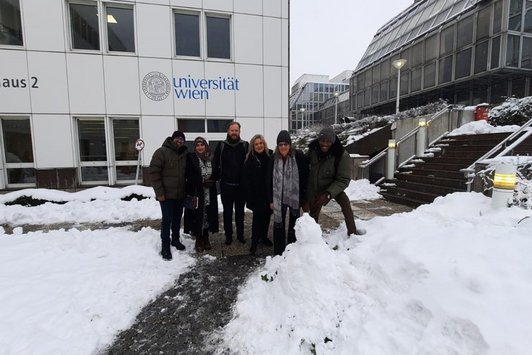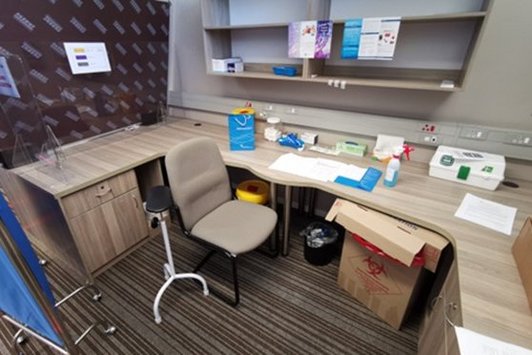
Project completed: P063_South Africa
The impact of Covid-19 on neuropsychological functioning and late-life dementia risk: The role of inflammation and oxidative stress
Cooperating countries: South Africa and Austria
Coordinating institution: Cape Peninsula University of Technology, Prof JL Marnewick, marnewickj@cput.ac.za
Partner institution: University of Vienna, Department of Nutritional Sciences
Project duration: 1 June 2022 - 31 May 2024
Budget: EUR 19.070
Abstract:
The Covid-19 pandemic has several important implications for the fields of aging and neurocognitive health. Patients recovering from severe Covid-19 illness demonstrate impairments in memory, processing speed, executive functions and neuropsychiatric status. Neuroinflammation is currently considered the primary mechanism of neuropsychological complications in Covid-19 and because of the intimate, bidirectional relationship between inflammation and oxidative stress, we can speculate that oxidative damage will account for a proportion of these complications in acute and Long Covid. Alterations in immune-related and oxidative pathways are also strongly implicated in several neurodegenerative disorders. The heightened inflammatory responses linked to Covid-19, which activate neutrophils and mononuclear phagocyte system cells to produce high volumes of reactive oxygen species, are primed to potentially exacerbate dementia risk and accelerate disease progression in the elderly.
The present study therefore proposes to recruit 174 participants aged between 40-65 years into a quasi-experimental design with Covid-19 illness as a between-subjects factor. Our aims are to:
1) Assess the extent of Covid-19-related neurocognitive fallout at one-year follow-up;2) Ascertain key biomarkers from serum samples of neurodegeneration including beta-amyloid and tau, and inflammation and oxidative stress3) To characterize the antibody response to Covid-19 infection in asymptomatic and symptomatic participants and 4) Assess the extent to which these biomarkers are predictive of cognitive dysfunction. An empirically based understanding of these dynamics will be critical for mobilising healthcare systems to meet the needs of Covid 19 survivors and identifying those at high risk for developing neurodegenerative conditions on the basis of targeted biomarker profiles.
Summary:
The Covid-19 pandemic has several important implications for the fields of aging and neurocognitive health. Patients recovering from severe COVID-19 illness demonstrate impairments in memory, processing speed, executive functions and neuropsychiatric status. Neuroinflammation is currently considered the primary mechanism of neuropsychological complications in Covid-19 and because of the intimate, bidirectional relationship between inflammation and oxidative stress, we can speculate that oxidative damage will account for a proportion of these complications in acute and Long Covid. Findings of this study contribute to our understanding of the post-COVID landscape. COVID-19 itself did not show immediate cognitive effects in this sample cohort. Although the sample size is small, this is a reassuring finding given the extent of infection globally and early warnings of potentially very harmful neurological impacts of the virus. Nevertheless, the possible link between tau protein and heightened experiences of pain and fatigue during COVID-19, suggests that neuroinflammation may play a role in the broader long-term consequences of the virus. This finding, combined with further investigations into biomarkers over time, could inform future healthcare approaches, including monitoring and intervention for individuals who experience prolonged cognitive or physical symptoms post-infection.


